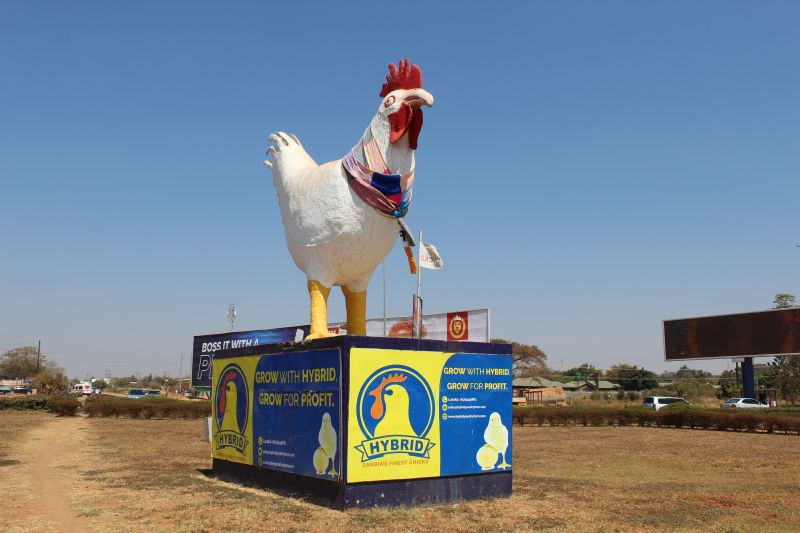
When money meets purpose, communities notice. That is exactly the promise behind AgDevCo’s recent decision to provide a US$10 million senior loan to Hybrid, one of Zambia’s leading vertically integrated poultry producers. The funding will finance a new, modern slaughterhouse in Lusaka that the companies say will boost local processing capacity, create jobs, and help Zambia depend less on imported poultry.
A timely investment with real people in mind
If you picture a bustling facility where chicks grow into healthy broilers, feed mills hum, and butchers prepare product for local markets, you are getting close to Hybrid’s daily reality. The proposed facility is framed as a natural next step in Hybrid’s growth story. Management has said the new slaughterhouse will be designed as a state of the art processing plant able to serve domestic retail and restaurants while opening up regional exports, notably to Lubumbashi in the Democratic Republic of Congo.
This is not just about metal and machinery. The expansion is expected to create hundreds of new roles across processing, logistics, and operations, while strengthening the whole supply chain from hatchery to retail shelf. AgDevCo, which positions itself as an impact investor in African agriculture, views the loan as a way to generate both commercial returns and tangible social impact for rural communities and smallholder suppliers.
Why the slaughterhouse matters for Zambia
Zambia’s appetite for poultry has been rising steadily. Yet production has not fully kept pace, meaning the country still imports significant volumes of chicken each year. Between 2020 and 2024 Zambia imported, on average, roughly 42,520 tonnes of poultry meat annually, a value estimated at about US$22.2 million. Building more local processing capacity helps close that gap, keeping more value inside the country and lowering the exposure of Zambian consumers and businesses to international price swings.
For consumers this can translate into fresher product, better supply reliability, and more predictable prices. For farmers, it creates a stable demand signal that can justify investment in better breeds, feed, and animal health. For the broader economy, it helps convert imported food bills into local wages and local tax revenue.
What Hybrid and AgDevCo are promising
Hybrid’s CEO, Richard Keeley, has described the facility as one of the largest of its kind in the region once completed, and stressed its role in meeting expanding domestic demand while supporting exports to neighboring markets. That regional focus matters because cities like Lubumbashi represent real and growing demand centers for quality processed poultry.
AgDevCo frames the loan as consistent with its mission to back agribusinesses that generate sustainable jobs and market opportunities across sub-Saharan Africa. The London-based firm manages a sizable portfolio and has made numerous investments aimed at combining financial returns with social benefits. Partnering with Hybrid extends AgDevCo’s footprint in Zambia and signals confidence in the country’s agri value chain.
Practical knock on effects
Here are the concrete wins this project promises to unlock:
- More local processing: The slaughterhouse will increase the share of chicken that can be processed inside Zambia, cutting the need for imports.
- Jobs and skills: Facility construction and operations will create direct and indirect employment across Lusaka and surrounding districts. Some industry accounts suggest several hundred new positions tied to expansions like this one.
- Value chain integration: Hybrid already operates hatcheries, feed mills, and farms. Processing capacity completes that integration and smooths logistics from farm to fork.
- Regional trade: With improved capacity and compliance to higher processing standards, Hybrid can scale exports to neighboring urban markets, supporting foreign exchange earnings and regional food security.
Questions that remain
The headline number is clear, but a few important details have not yet been disclosed publicly. AgDevCo and Hybrid have not released a full timetable for construction, nor the plant’s exact daily throughput. Those operational specifics will determine how quickly the benefits reach farmers and consumers. Still, the strategic thrust is plain: build capacity now to meet demand later.
Bigger picture: why impact investors matter here
Agriculture in sub Saharan Africa often needs patient capital that understands the rhythms of farming seasons, biosecurity needs, and local markets. AgDevCo, as a specialist investor in the sector, brings financing that is tailored to those constraints and opportunities. By using debt to finance infrastructure, the investor aims to accelerate growth while keeping ownership and operations in local hands. That model can be powerful when it strengthens domestic food systems rather than simply extracting short term profit.
What to watch next
Keep an eye on three things as the project progresses:
- Construction milestones and timeline – when will the plant open and at what capacity.
- Job creation and local hiring policies – how many roles are filled locally and what training is provided.
- Impact on imports and prices – whether local processing reduces import volumes and stabilizes consumer prices over the next 12 to 24 months.
This loan is more than a financial transaction. It is a bet on people who rear chicks, drive feed trucks, maintain cold chains, and cook meals for families. If the slaughterhouse delivers on its promise, the payoff will be measured in jobs, steadier supplies of affordable protein, and a stronger local economy. That is the kind of development story people remember and build on.
Stay updated with the latest farming tips and agriculture industry news from Africa by subscribing to our newsletter. Don’t miss out on valuable insights and updates. Follow us on Twitter, LinkedIn, and Facebook to join our farming community and stay connected with us.


















